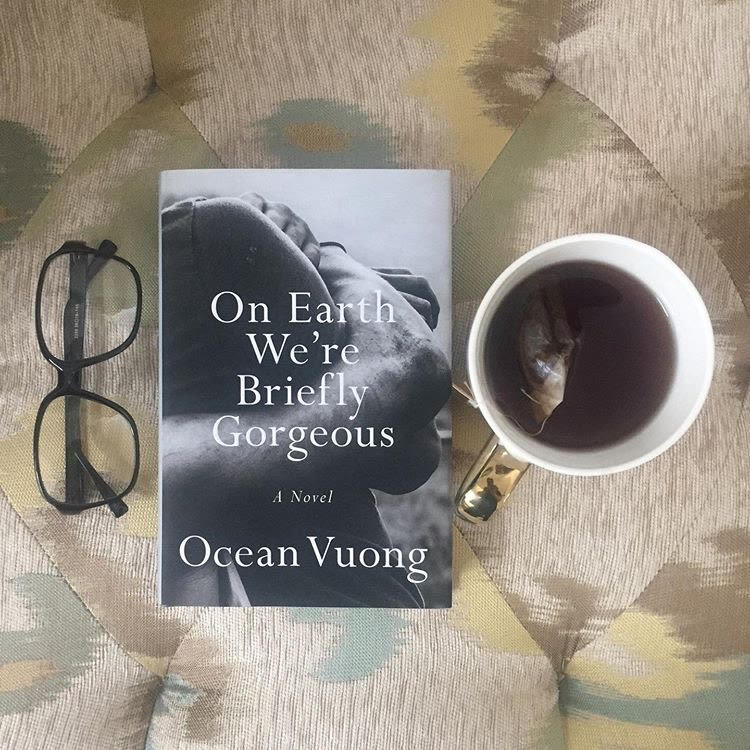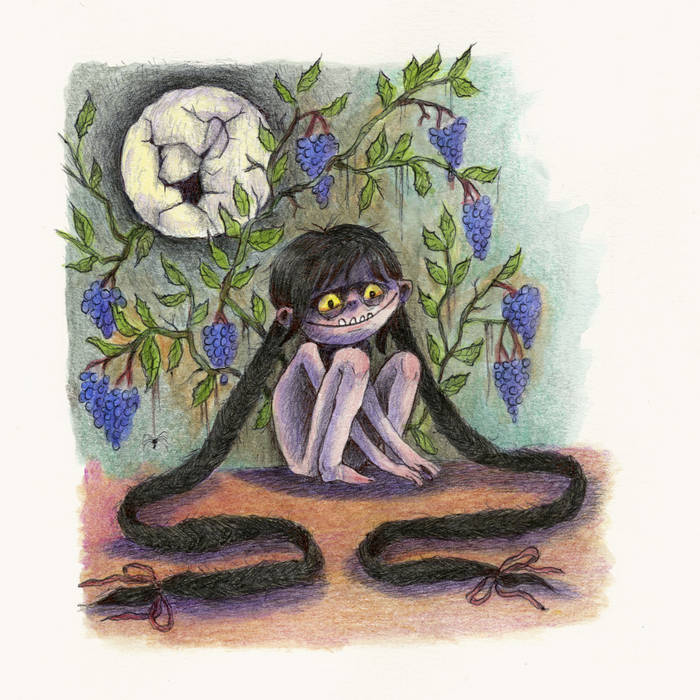After finishing Albert Camus’s “The Plague,” I found myself at a loss for what to read next. Four tall stacks of books sat on my desk, a result of my compulsive need to keep buying more. I had decided on a collection of stories by Franz Kafka and carefully removed it from one of the towers when I noticed “On Earth We’re Briefly Gorgeous” by Ocean Vuong wedged in between. Puzzled, I slid Kafka back into his original place and pulled out the other book. I had no recollection of ever getting my hands on this book. It felt like a sign that I was meant to read it next.
“On Earth We’re Briefly Gorgeous” is Ocean Vuong’s debut novel, told in the form of a letter from the narrator, Little Dog, to his mother, Hong, who cannot read. The story encompasses a myriad of themes — race, assimilation, sexuality, war, addiction, love, and loss — that all weigh heavy on the heart. Every page gripped me intensely, just as I pinched them tightly between my fingers, clinging desperately to the gravity of Vuong’s words.
Little Dog weaves retellings of his family’s experience of wartime in ‘60s Vietnam with stories from his childhood in Hartford, Connecticut, illustrating his life as an extension of his mother and grandmother’s. From inhaling constant acetone fumes in the nail salon with Hong, to working in the tobacco fields of Connecticut, to riding bikes and smoking cigarettes with a boy he grew to love, Little Dog carries the burdens of adversity through each experience.
What makes Vuong’s writing so compelling is that, although we are transported to and from different moments in the past, each moment is lived almost simultaneously. In his adulthood, we travel with Little Dog through the subways of New York and back home to Hartford, a place that still feels familiar even years after leaving. There is an intimacy to that darkness, and in an instant, he transports us in and out of distant memories. Every piece of time links back to itself somehow, like we can never truly escape it.
Vuong plays with time throughout the novel. He tosses you back and forth; one minute you’re in Vietnam with his grandmother Lan, and the next, you’re in a boy’s truck listening to 50 Cent and passing a joint, then your stomach sinks when you learn that boy overdosed. So many loved ones overdosed. A wave of grief follows you as you turn each page, and it isn’t until the end that the grief overtakes you completely.
I think back to a quote I read once about how grief is just love in a heavy coat. Both feelings are fundamentally intertwined, and Vuong weaves this metaphor into his work in an exceptional way. There is an underlying sadness to his writing, one that cannot be ignored and adds to the depth of his stories.
So many lines were jaw-dropping and left me wondering, “How does a person just … think of that? How does his mind work to create such unique, intriguing juxtapositions?”
I’m brought back to a point where Vuong compares the comma to a fetus: “that curve of continuation … saying, with our entire curved and silent selves, more, more, more.” It struck something in me — how beautiful it is to suggest that, from the beginning of our lives, we remain in a state of wanting, yearning, and desiring, that we long so deeply for life, and to continue living.
I recently came to the realization that I often gravitate toward sad stories. Some of my favorite films can’t be watched without holding back tears — the kind that leave you with an ache in your chest. This is not to say I don’t enjoy happier, more positive media; there is so much joy to be shared, and there is high value in that. However, the opposite rings true, as well: that which sparks deep emotion is crucial to the human experience. Who would we be if we did not feel sadness? What would it mean if we never knew pain?
Sometimes there is no avoiding pain; it creeps up and controls you. “On Earth We’re Briefly Gorgeous” tells us this in words that I may never forget. The best we can do is feel that pain for what it is — be that grief or love — and hold it somewhere in our hearts.
Photo by Arshia Singh










Poonam • May 31, 2024 at 9:14 am
haven’t read the book but your writing, the way you have described everything makes me wanna read it ! Lovely read ! keep writing !
Poonam • May 30, 2024 at 8:07 pm
haven’t read the book but your writing, the way you have described everything makes me wanna read it ! keep writing !
Poonam • May 30, 2024 at 7:30 pm
I haven’t read the book but I can say for sure that your article makes me wanna read it !
lovely read ! keep writing !